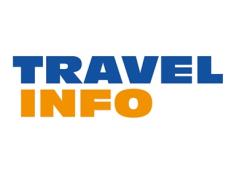ITCs – is more regulation needed?
THE travel industry has
undoubtedly been harmed
by recent incidents of
fraud, which have affected
consumers’ trust in ITCs,
says Dinesh Naidoo, group
operations director at
Serendipity Worldwide Group.
With fraud cases being
reported on programmes like
Carte Blanche, the entire
industry’s image has been
harmed, making rogue players
a cause of concern for all
members. It’s therefore in
the interests of all players to
find a solution, says Travel
Counsellors gm for South
Africa, Mladen Lukic. He
believes that more regulation
is required to protect
both the industry and the
consumer. However, it is the
host companies, rather than
individual ITCs, that must be
more strictly governed.
This view is shared by
Garth Wolff, ceo of eTravel,
who looks to Asata for
guidance when it comes to
regulations. “The correct
code of conduct should be
stipulated and managed by
Asata and host companies,”
he says, adding that he
doesn’t believe that Asata has
the power or the passion to
impose regulations.
The main opportunity for
fraud tends to lie in the sale
of air tickets, says Mladen. He
notes that the vast majority
of South African ITC solutions
are limited to non-Iata ticketing
agreements, a solution that is
purely override driven. “This
being the case, Asata and
Iata should take a stance
on regulating the industry.
Ultimately, it is Iata that
licenses host companies to
issue tickets,” says Mladen.
Asata has changed its criteria
to encourage independent
travel consultants to join its
fold, says ceo, Otto de Vries.
This change was made in
recognition of the massive
expansion in the number of ITC
operators during the past 10
years. “The question we, as
an industry, now face is this:
to what extent do the various
forms of ITC models safeguard
the interests of the consumer,
their host company’s brand,
the industry and the individual
ITC? We need to define and
encourage a model that
minimises risks to any of
these parties and encourage
ITCs that are not already Asata
members to join, contribute to
and comply with a strict code
of conduct that protects all
parties involved.”
According to Mladen, South
Africa is the only market with a
‘free for all’ model in the travel
industry. “In other markets,
you can’t issue tickets without
first obtaining a licence, and
you cannot sub-license to
someone else without following
appropriate procedures. There
has to be a binding agreement
stipulating the conditions.”
He says the industry
needs an open discussion
about what is, and is not,
acceptable. “There has to be
a review of who can provide
ticketing services and on
what conditions. And more
importantly, in terms of fraud,
what is the responsibility of the
host company?”
However, not all industry
players agree that further
regulation is the answer.
Club Travel is a case in point.
Franchise director, Jo Fraser,
says that although Asata
needs to be the vehicle for
protection and should be
the industry’s representative
when addressing the issue,
individual companies should
implement their own rules. At
Club Travel, several internal
regulations have been put
in place to protect ITCs and
clients alike.
The lack of industry
regulation isn’t necessarily a
problem, Jo argues. “I think we
live in a world where people
take responsibility for their
choices because they see
that regulations don’t protect
them.”
“It’s up to the general
public to take responsibility to
check they are dealing with a
legitimate entity,” agrees
Rian Bornman, managing
director of FlightSite. He
argues that the industry’s lack
of regulation is essential for
transformation, making it easy
for potential agents to become
involved in the trade.
Rian does not believe that
further regulation is the
answer. He says the most
that can be expected from the
ITC industry is that operators
register and engage with
governing bodies like Asata
so that the general public
know they are dealing with an
endorsed entity.
What makes a great ITC?
ALTHOUGH there are
numerous ‘easy’ startup
options available for
travel agents wanting to
launch their own business,
industry leaders warn that
there’s more to becoming a
successful ITC than simply
issuing tickets through a
host company.
Mladen Lukic of Travel
Counsellors says the three
main ingredients that make
for a successful ITC are
passion for what you do, a
sincere desire to help clients
and utter dedication to your
business. “The competition
is fierce, so you need to
be able to relate to all your
clients and treat them all as
individuals.
“The main reason ITCs
fail is because they try
to replicate what they
did as staff members of
a retail store,” Mladen
continues. “In fact, the
retail environment is entirely
different.” He warns against
focusing exclusively on air
fulfilment, a task that is
easily completed by online
travel agencies. “If the
only service you provide is
access to tickets, you’re not
offering anything unique.”
This view is shared by
Jo Fraser of Club Travel.
She further believes that
successful agents are those
who use the best technology
systems to find the cheapest
fares in the market and are
able to upsell to clients by
including land arrangements.
They are able to provide
good advice, and charge a
fair price for their service.
An ITC should have at
least five years’ experience
as a travel consultant in a
travel agency; two years’
experience as a senior and
two years’ experience in
ticketing and fares, says
eTravel’s Garth Wolff. “We
screen every potential ITC
to see if they have what it
takes to succeed as an ITC.”
Having a dynamic, social
and energetic personality is
a key requirement for any
ITC, says Dinesh Naidoo of
the Serendipity Worldwide
Group. He adds that ITCs
need to be professional and
pro-active at all times but
also need to be able to offer
competitive pricing on a wide
range of products and, most
importantly, provide great
service.
“The single biggest
driver that we’ve identified
amongst our most
successful agents is a
commitment to service,”
agrees Rian Bornman, md of
FlightSite. He explains that
it is important to be able to
offer clients various options
within their timeframe and
budget. Turnaround time is
key.
Rian adds that agents
will be successful if they
manage to establish a
relative advantage by
focusing on the perceived
value of the product they're
selling, such as direct flights
or minimum connection
times. Identifying niche
markets can also make an
ITC stand out.
How can suppliers best
connect with ITCs?
THE exponential growth of the
ITC sector places pressure on
suppliers to find new ways to
connect with these individuals.
The challenge here is that
ITCs are located across the
country and often work from
their own homes.
Technological advancements
are a crucial help for suppliers
trying to reach ITCs. In fact,
says Mladen Lukic of Travel
Counsellors, technology has
made the physical location
of travel consultants “almost
irrelevant”. “We even have
consultants who operate from
outside South Africa for a
couple of months a year. They
have full access to suppliers
through channels such as
Travel Counsellor TV.”
Technology has also been
used to great effect at
Beachcomber, where sales and
marketing manager, Joanne
Visagie, says new platforms
have made it easier to connect
with ITCs. “For example,
Beachcomber’s new online
quoting system is designed to
further enhance opportunities
for travel consultants to
provide instant quotes, offering
a range of choices accessible
round the clock.”
Mainstays like email and
phone calls are still key
for Gail Gilbert, product,
marketing and sales manager
for AfricaStay. “We send out
our specials regularly, place
advertising in trade
magazines and trade
websites and regularly update
online services such as
Travelinfo. All these mediums
are accessible to agents
nationwide.”
Although these technological
possibilities are useful,
Tammy Hunt, operations
director for eTravel, says
that personal relationships
are critical, especially within
the demands of the travel
industry. “Webinars and
other technological solutions
can solve some issues but
no relationship can be built
on trust and respect via a
screen.”
She further believes that,
although it can be difficult
for suppliers to reach ITCs
around the country, employing
more sales staff is not
necessarily the answer. “ITCs
should be more open minded
about joining presentations
and training sessions put
together by the suppliers,
either at the host company’s
offices or at other arranged
venues.
“The relationship requires
input from both sides.”
Most suppliers tend to
focus on key centres, such
as Johannesburg and Cape
Town, says Dinesh Naidoo
of Serendipity Worldwide
Group “Durban has been
labelled the price-conscious
city with difficult clients
and travel agents,” he
says. The ideal solution, he
continues, would be to host
more social activities such
as late afternoon catch-up
sessions in a convenient
location, inviting as many
ITCs as possible to attend
at least once a month. He
says although webinars are
a popular method, face-toface
contact remains vitally
important.
Another challenge for ITCs is
that suppliers often focus on
top-selling operators. Joanne
admits that Beachcomber’s
system means that this is
sometimes the case but
adds that this doesn’t mean
that others are ignored. “We
include agencies throughout
the country by conducting
regular out of town trips,
and monitoring the resulting
feedback. We also have one
office day every month where
we focus exclusively on outof-towners,
updating them on
the latest developments via
email or telephonically.”
A number of platforms have
been launched so that each
ITC consortium or network
system is able to interact with
Beachcomber in the manner
that suits them best, says
Joanne. For example, all ITCs
from a certain region may
be invited to attend a coffee
date or breakfast meeting.
“Distance is dead. We have
solutions enabling us to reach
everyone.”
Nonetheless, for many
suppliers, the emphasis
remains on major centres.
For instance, Cathie Bester,
national sales manager
for World Leisure Holidays,
says the company’s primary
focus is on the regions
where the biggest sales are
concentrated. However, WLH
also maintains contact with
ITCs in outlying areas with
regular communication via
e-mail, sales calls to these
regions at least twice a year
and invitations to educationals
and the annual roadshow.
Cathie points out that a
good relationship with the
consortium is key. “We work
closely with our partners who
offer us tremendous support
in facilitating communication
with their ITCs, from regular
webinars and online training
sessions, to allowing us time
at ITC regional meetings
where we are able to interact
with their ITCs, and inviting us
to participate at their annual
conferences.”
According to Cathie,
the advent of cellphones,
email and Internet has
revolutionised the way the
travel industry does business,
at the same time boosting
opportunities for ITCs. But,
she concludes, “there is
nothing to beat a face-to-face
call and building a personal
relationship with your
client”












